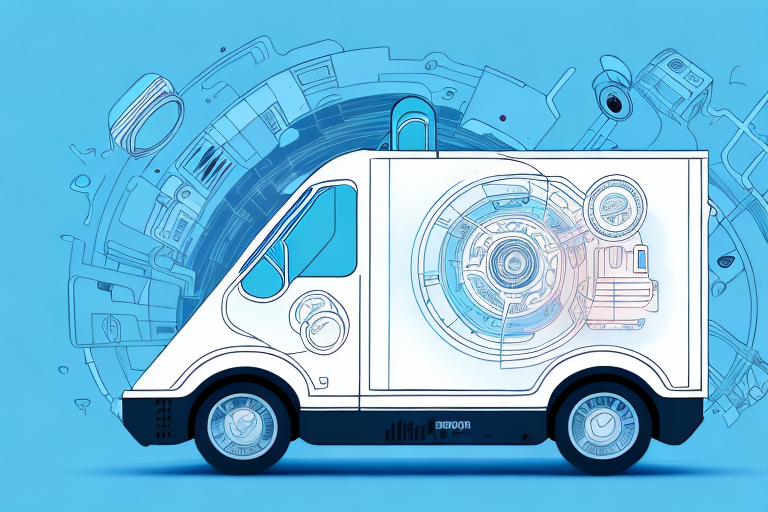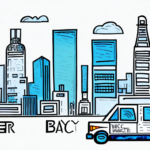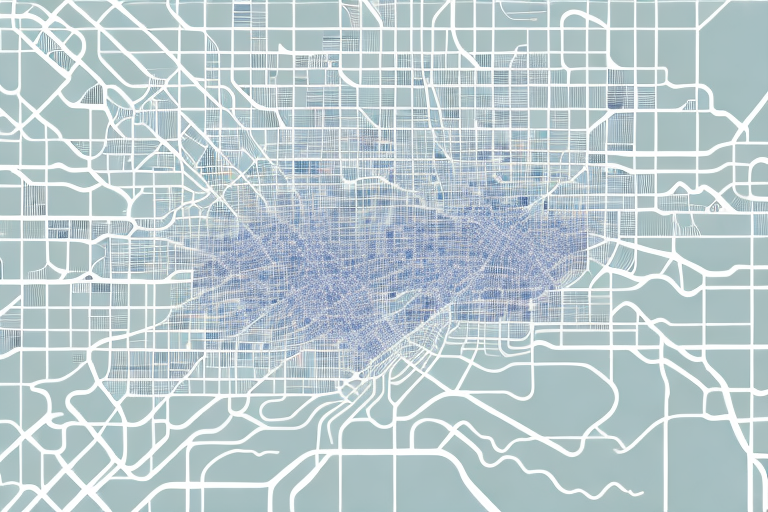Exploring the Innovations of UPS: How the Company is Revolutionizing the Logistics Industry
United Parcel Service, commonly known as UPS, stands as a global leader in logistics and delivery services. Operating in over 220 countries and territories, UPS delivers an average of 21.9 million packages and documents each day. The company's success is driven by its relentless innovation and the integration of advanced technologies to streamline operations and enhance customer satisfaction. This article delves into the various innovations introduced by UPS and examines how they are transforming the logistics industry.
The History of UPS: From a Small Messenger Service to a Global Industry Leader
Founded in 1907 as a small messenger service in Seattle, Washington, UPS has evolved significantly over the past century. Initially focused on delivering telegraphs and packages, the company expanded its services to include parcel delivery and comprehensive logistics solutions. Today, UPS boasts a fleet of over 125,000 ground and air vehicles and employs more than 500,000 individuals worldwide.
UPS's commitment to growth and excellence is evident in its sustainability efforts. The company aims to reduce its greenhouse gas emissions by 12% by 2025, investing in alternative fuel vehicles and renewable energy sources. Additionally, UPS has implemented innovative technologies, such as route optimization software and advanced package tracking systems, to enhance operational efficiency and minimize environmental impact.
Advanced Technology in UPS’s Logistics Operations
Technology plays a pivotal role in UPS’s ability to manage vast logistics operations efficiently. The company has made substantial investments in automated sorting and tracking systems, enabling the rapid and accurate handling of millions of packages daily.
Automated Sorting and Tracking Systems
UPS utilizes state-of-the-art automated sorting systems that sort packages based on their destination with remarkable speed and accuracy. These systems are complemented by advanced package tracking technologies, allowing both the company and its customers to monitor shipments in real-time.
Data Analytics for Route Optimization
By leveraging data analytics, UPS optimizes delivery routes to reduce transit times and fuel consumption. Analyzing traffic patterns, weather conditions, and delivery schedules enables UPS to determine the most efficient paths for its drivers, enhancing both speed and reliability.
Innovative Technologies: Drones and Electric Vehicles
UPS is at the forefront of adopting innovative technologies such as drones and electric vehicles. The company is testing drone delivery in rural areas to reduce delivery times and costs. Furthermore, UPS has been expanding its fleet of electric vehicles, which produce zero emissions and offer long-term cost benefits.
ORION: On-Road Integrated Optimization and Navigation
ORION is UPS's proprietary software platform that uses complex algorithms to optimize delivery routes in real-time. This technology has enabled UPS to save millions of miles driven annually, significantly reducing fuel consumption and greenhouse gas emissions while improving delivery efficiency.
Sustainability Initiatives: UPS’s Commitment to the Environment
UPS has made substantial strides in integrating sustainability into its operations. The company's initiatives focus on reducing carbon emissions, promoting alternative energy sources, and enhancing overall environmental responsibility.
Carbon Neutrality Goals
UPS has pledged to achieve carbon neutrality by 2050. To reach this ambitious goal, the company is investing in alternative fuel vehicles, expanding its use of renewable energy, and implementing energy-efficient technologies across its facilities.
Alternative Fuel Vehicles and Renewable Energy
The transition to alternative fuel vehicles, including electric and hybrid trucks, is a cornerstone of UPS’s sustainability strategy. These vehicles help reduce emissions and operational costs. Additionally, UPS invests in renewable energy sources, such as solar and wind power, to fuel its operations sustainably.
Sustainable Packaging Practices
UPS is committed to sustainable packaging by reducing waste and promoting recyclable materials. The company offers a range of eco-friendly packaging options and encourages customers to use sustainable materials for their shipments.
Energy-Efficient Technologies
In its warehouses and distribution centers, UPS has implemented energy-efficient technologies like LED lighting and motion sensors. These measures significantly decrease energy consumption and contribute to the company's overall sustainability goals.
Partnerships for Sustainability
UPS collaborates with organizations such as the World Business Council for Sustainable Development and the Environmental Defense Fund to promote and implement sustainable practices across the logistics industry.
Delivering Packages with Efficiency and Precision: The UPS Delivery Process Explained
The delivery process is a critical component of UPS’s operations, ensuring that packages reach their destinations promptly and in excellent condition. UPS has developed a highly efficient and precise delivery system that leverages advanced technologies and optimized processes.
- Package Pickup: UPS drivers collect packages from various locations and transport them to sorting facilities.
- Automated Sorting: At the sorting facility, packages are scanned and sorted by destination using automated conveyor systems and barcode scanners.
- Loading and Transit: Sorted packages are loaded onto delivery trucks equipped with GPS technology, allowing drivers to navigate efficiently and track delivery progress in real-time.
- Final Delivery: Upon reaching the final destination, drivers unload and deliver packages to recipients. If the recipient is unavailable, a notice is left with instructions for package retrieval, or the package is delivered to a nearby UPS Access Point for convenient pickup.
UPS offers a variety of delivery options to cater to different customer needs, including same-day delivery, international shipping, and delivery to UPS Access Points. These options enhance flexibility and convenience for customers worldwide.
Supply Chain Management: Enhancing Efficiency and Transparency
Effective supply chain management is essential for UPS’s operations, ensuring that products are delivered on time and in optimal condition. The company employs sophisticated tracking and monitoring systems to provide real-time visibility into the supply chain, allowing customers to track their packages at every stage.
Collaborative Partnerships
UPS collaborates closely with suppliers and partners to streamline supply chain processes. These partnerships enable seamless coordination and ensure that products move efficiently from origin to destination.
Comprehensive Supply Chain Solutions
UPS offers a range of supply chain solutions, including warehousing and distribution services, inventory management, and transportation planning. These services help businesses optimize their logistics operations and reduce costs.
Sustainable Supply Chain Practices
UPS integrates sustainability into its supply chain management by investing in alternative fuel vehicles and energy-efficient technologies. The company also works with suppliers to ensure responsible sourcing and waste reduction, aligning with global sustainability standards.
Customer Satisfaction: Enhancing the Delivery Experience
Customer satisfaction is at the core of UPS’s success. The company continually innovates and improves its services to meet the evolving needs of its customers, ensuring a seamless and enjoyable delivery experience.
UPS My Choice
UPS My Choice is a service that empowers customers with greater control over their deliveries. Users can track packages in real-time, change delivery dates, and receive notifications when their packages are on the way. This service enhances convenience and flexibility for customers.
Extensive Network of Retail Locations
UPS has established a vast network of retail locations where customers can pick up and drop off packages. This network provides added convenience and flexibility, allowing customers to manage their shipments at their convenience.
Innovative Delivery Technologies
UPS is investing in cutting-edge technologies, such as drone deliveries and autonomous vehicles, to further enhance the delivery experience. These technologies aim to reduce delivery times and improve efficiency, especially in hard-to-reach or congested areas.
Commitment to Sustainability
By prioritizing sustainability, UPS not only benefits the environment but also enhances the customer experience. Eco-friendly delivery options, such as electric vehicles and optimized routes, provide more efficient and environmentally responsible choices for customers.
The Future of Logistics: UPS’s Vision and Industry Trends
The logistics industry is continuously evolving, and UPS is dedicated to staying ahead through innovation and strategic investments. The company's vision for the future encompasses emerging technologies, sustainability, and global expansion.
Investment in Emerging Technologies
UPS is investing in emerging technologies like drones and autonomous vehicles, which have the potential to revolutionize the delivery process. These technologies promise faster delivery times and increased efficiency, particularly in densely populated or remote areas.
Blockchain for Supply Chain Transparency
UPS is exploring the use of blockchain technology to enhance supply chain transparency and efficiency. Blockchain enables a shared digital ledger, providing real-time visibility and reducing errors, thus improving collaboration between partners.
Sustainability Goals
UPS aims to have 25% of its total electricity consumption powered by renewable energy sources by 2025. The company continues to invest in alternative fuel vehicles and has already deployed over 10,000 such vehicles in its fleet, significantly reducing its carbon footprint.
Global Expansion and Local Partnerships
To expand its global reach, UPS is partnering with local delivery companies in various countries. These partnerships allow UPS to offer more seamless and efficient delivery experiences for customers while supporting local businesses and economies.
The Impact of E-Commerce on Logistics and UPS’s Adaptive Strategies
The explosive growth of e-commerce has significantly influenced the logistics industry, driving increased demand for efficient and reliable delivery services. UPS has adeptly adapted to these changing demands by implementing innovative technologies and expanding its distribution network.
Expansion of Distribution Centers
To manage the surge in package volumes, UPS has expanded its network of distribution centers. These centers are strategically located to facilitate faster deliveries and handle the increased volume efficiently.
New Delivery Services
UPS has introduced services such as Saturday delivery and UPS Access Points to provide greater convenience and flexibility for customers. These services cater to the growing need for timely and flexible delivery options in the e-commerce landscape.
Integration of Sustainable Practices
In response to the heightened demand from e-commerce, UPS has implemented sustainable practices, including the use of electric and hybrid trucks and optimized routing methods. These practices help reduce emissions and minimize environmental impact while maintaining high service standards.
Addressing Last-Mile Delivery Challenges in Urban Areas
Last-mile delivery, the final step in the delivery process, presents significant challenges in urban areas characterized by high population densities and traffic congestion. UPS employs innovative strategies and technologies to overcome these hurdles, ensuring timely and efficient deliveries.
Adoption of Electric Bikes and Drones
To navigate congested urban environments, UPS utilizes electric bikes and drones for delivery. These eco-friendly and agile delivery methods allow UPS to bypass traffic jams, reduce delivery times, and lower carbon emissions.
Collaborations with City Planners and Officials
UPS collaborates with city planners and local officials to develop solutions that mitigate congestion and enhance traffic flow. These partnerships facilitate the implementation of efficient delivery routes and optimize urban logistics infrastructure.
UPS Access Point Program
The UPS Access Point program allows customers to pick up packages at designated locations such as convenience stores and lockers. This program reduces the number of delivery attempts, lowers transportation costs, and offers customers greater flexibility in receiving their packages.
Implementation of Eco-Friendly Delivery Methods
Beyond electric bikes and drones, UPS is exploring other eco-friendly delivery methods, such as bike couriers and walking routes. These methods contribute to reducing emissions and improving air quality in densely populated urban areas.
Conclusion
UPS’s remarkable success can be attributed to its unwavering commitment to innovation and customer satisfaction. By continuously investing in cutting-edge technologies and adapting to industry trends, UPS remains at the forefront of the logistics sector. The company's dedication to sustainability further reinforces its position as a responsible and forward-thinking industry leader.
UPS’s strategic initiatives not only enhance operational efficiency and customer experience but also contribute to environmental conservation and community well-being. Through its comprehensive approach to logistics, technology integration, and sustainability, UPS is setting new standards in the industry and paving the way for a more efficient and sustainable future.
Moreover, UPS’s philanthropic efforts and corporate social responsibility initiatives demonstrate the company's commitment to making a positive impact on society. By supporting various social and environmental causes, UPS strengthens its brand reputation and fosters customer loyalty, ensuring long-term success and continued innovation in the logistics industry.






















